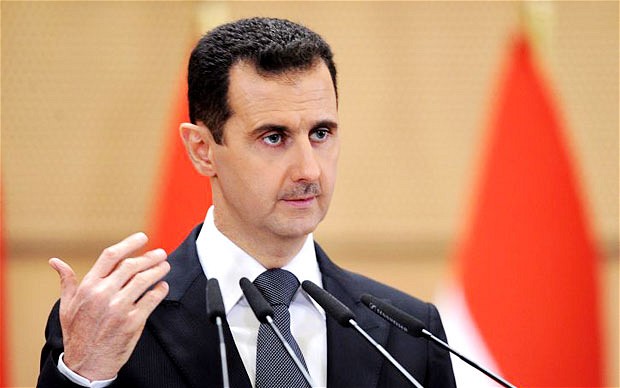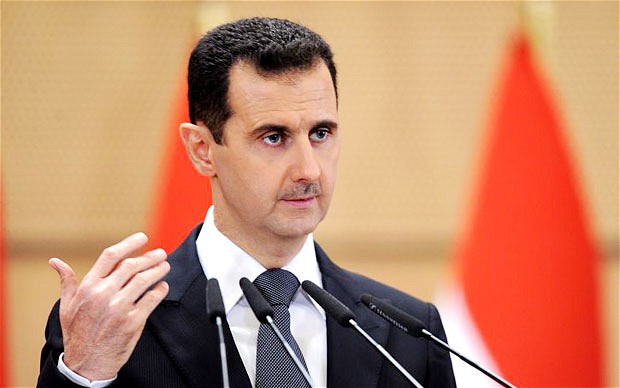Syria’s Assad hopes for ‘reconciliation’ deals from Astana talks

Syrian President Bashar al-Assad.

(Reuters) Syrian President Bashar al-Assad said he believed peace talks in Kazakhstan would lead to local “reconciliation” deals with rebels, a sign of his confidence in a process launched by his Russian allies after the opposition’s defeat in Aleppo.
Assad told a Japanese TV station he hoped the conference would be a platform to discuss “everything” but that it was unclear if there would be political dialogue “because it is not clear who will participate”.
Russia set the new diplomatic process in motion after its air force helped the Syrian government and allied Iran-backed militia defeat rebels in Aleppo city’s east last month, the diverse opposition’s biggest defeat of the war.
Rebels due to attend the talks say they will discuss only shoring up a ceasefire brokered by Turkey and Russia last month — and which the rebels say has been widely violated by the government and its allies — and humanitarian issues.
Local reconciliation agreements are the government’s preferred method for pacifying rebellious areas. They amount to the effective surrender of rebels in a particular area, typically after years of government siege and bombardment.
Assad said rebel groups would give up their weapons and receive a government pardon under such agreements.
“So far, we believe that Astana will be about talks with terrorist groups over a ceasefire” that would facilitate reconciliation deals, Assad said excerpts from the interview published on Twitter by the presidency.
He said the conference’s priority would be “reaching a ceasefire to protect lives, and to permit humanitarian aid to reach different areas of Syria”.
Russia, Assad’s most powerful ally, has pushed the Astana talks with help from Iran and Turkey, which backs the opposition but has switched its priorities to fighting Kurdish groups and Islamic State.
A number of Turkey-backed rebel groups fighting under the Free Syrian Army banner have agreed to attend.
They accuse the government of violating the ceasefire on many front lines, including the Wadi Barada area near Damascus where government forces and Lebanon’s Hezbollah are waging a campaign to capture the capital’s main water source. Assad has also accused rebels of breaching the deal.
A military news outlet run by Hezbollah reported on Thursday that the army had captured Ifra, a village in Wadi Barada, from a jihadist group not included in the ceasefire. The opposition denies the group, Jabhat Fateh al-Sham, controls the area.
Russian Foreign Minister Sergei Lavrov said on Thursday that the United States had been invited to the Astana talks. Iran has said it opposes any U.S. presence.
